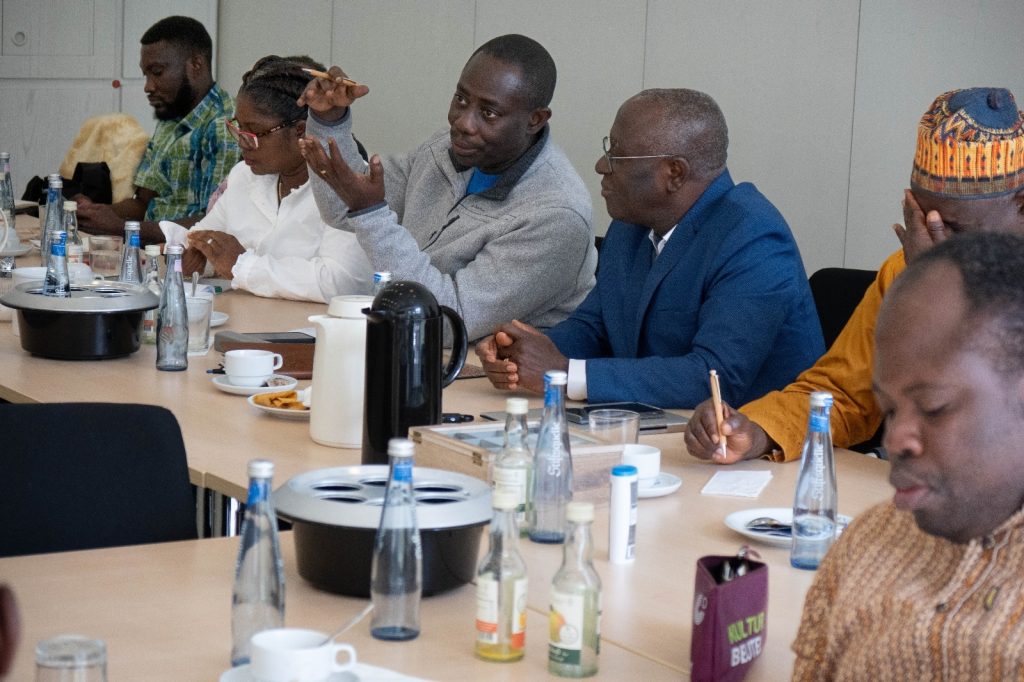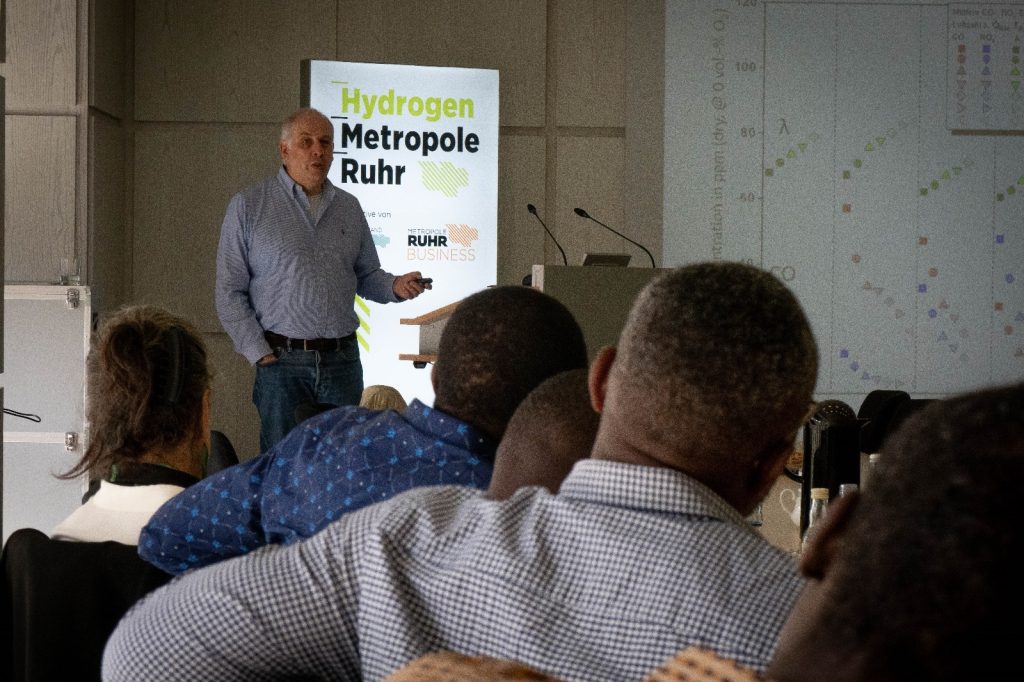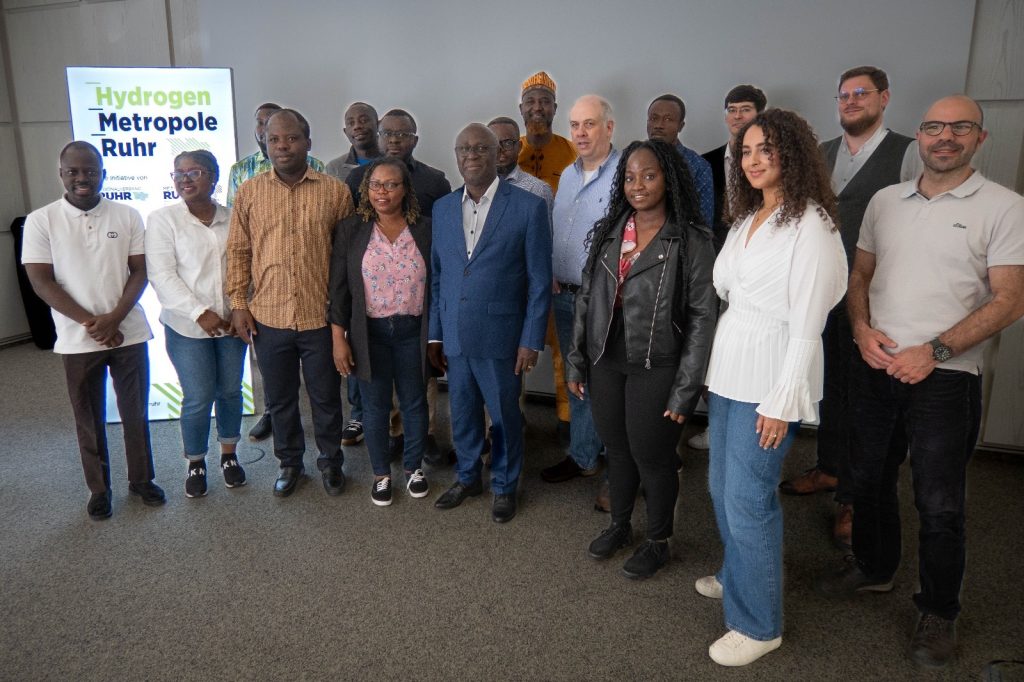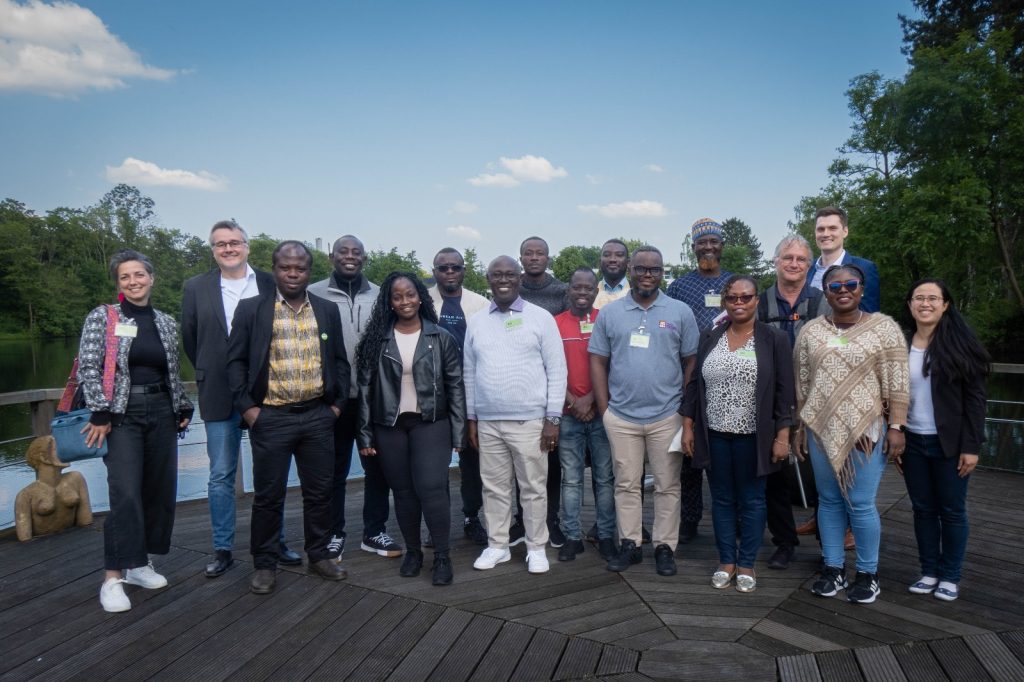By Edward Acquah
Accra, June 20, GNA- By the next two decades, hydrogen is expected to be broadly included in Ghana’s energy mix as indicated in the country’s Energy Transition Framework.
As part of its efforts to decarbonize the energy sector and fight climate change, the country aims to completely give up fossil fuels by 2070 and fully adopt environmentally friendly green energy.
Can the nation achieve its goal of adopting hydrogen by 2045 and, consequently, 2070, in the absence of a well-defined plan for its production, use, and investment?
Is green hydrogen, which has been touted as the energy of the future, the best option for Ghana in the medium to long term given the abundance of sunshine and high wind speed?
Beyond capturing targets in documents, does Ghana have the financial, expertise, and regulatory capacity to participate in the promising green hydrogen economy and what should be the starting point in order not to be left behind?
These were some of the critical questions that emerged from various engagements when a 12-member team from Ghana embarked on a week study tour on green hydrogen in Germany as part of the 2024 Group Visitors Programme of the Federal Government.
The team comprised representatives from the Energy Commission, Environmental Protection Agency, Bui Power Authority, Ghana Standards Authority, A-B Hydrogen Limited, Kumasi Institute of Technology and Environment (KITE), Tamale Technical University, Council for Scientific and Industrial Research, Kwame Nkrumah University of Science and Technology, Don Bosco Solar Training Centre, EverGreen Development Project Limited, and the Ghana News Agency.
The team met with policy makers and institutions, innovators, policy think tanks and researchers championing Germany’s green hydrogen revolution to observe and learn from best practices.
The team also explored the potential for Ghana’s green hydrogen production and the opportunity cost, appropriate technology to adopt, and partnership opportunities in the areas of research, financing, and training.

The delegation, at various meetings, made a case for Ghana as the potential hub for green hydrogen production in Africa and requested a pilot project to assess the feasibility of a large-scale production of green hydrogen in the West African country.
What is green hydrogen and why should Ghana be interested?
The world is racing to decarbonise the global economy by 2050 as a crucial step to fighting climate change, and this requires a major transformation of the global energy systems to meet the target.
Global emissions from energy alone rose by 410 million tonnes, or 1.1 per cent, in 2023 to 37.4 billion tonnes, according to International Energy Agency (IEA) analysis.
Researchers and scientists have identified hydrogen as a viable long-term solution that can reduce emissions in heavy-polluting sectors, such as power generation, ground, sea and air transport and chemicals, and iron and steel.
Contrary to hydrogen, which is produced from natural gas, green hydrogen uses renewable electricity to power electrolysis that splits water molecules into hydrogen and oxygen.
This process, according to experts, does not require fossil fuel, making it a better option to accelerate decarbonisation targets.
Hydrogen has many uses. It can be transformed into electricity and methane to power homes and feed industry, and into fuels for cars, trucks, ships and planes.
Ammonia, an important base material for fertiliser production, can also be produced from green hydrogen.
Global hydrogen demand reached 95 metric tonnes in 2022, according to data from the International Energy Agency, an increase of almost three per cent over 2021 levels.
The IEA has projected that hydrogen demand will increase by more than 1.5 times to reach more than 150 metric tonnes by 2030 – and about 30 per cent of the demand will come from new applications.
Ghana’s energy transition plan has targeted a 50 per cent emission reduction in the energy sector by 2030.

Lesson from Germany’s approach
Germany has set a target to achieve carbon neutrality by 2045, and green hydrogen has been identified as a key enabler of the goal.
A key step taken by Germany is the development of a comprehensive hydrogen strategy to guide the production, usage, international cooperation, and importation of hydrogen to feed industry and other purposes.
The strategy targets a 10-gigawatt domestic production capacity of hydrogen out of a projected demand of 95 to 130 Terawatt hours in 2030. This means that 50 to 70 per cent of green hydrogen will be imported.
Germany has also passed the Hydrogen Acceleration Act to provide legal backing to key aspects of the hydrogen framework and established the National Hydrogen Council to advise and support the State Secretaries’ Committee on Hydrogen.
Ms Laura Droste, Senior Expert, Green Hydrogen International Market & Regulation, told the Ghanaian delegation that institutional collaboration, international cooperation, research, and targeted investments, underpinned the development and implementation of Germany’s updated hydrogen strategy.
She said Germany’s focus was to ensure availability of sufficient hydrogen, develop hydrogen infrastructure, implement hydrogen applications, and create good framework conditions.
Ms Droste said Germany was also developing a dedicated import strategy for green hydrogen.
To encourage domestic production of green hydrogen, Germany is also providing direct financial support for projects in the areas of green hydrogen production, infrastructure, mobility, industrial usage, and transpiration (pipeline).
What advantage does Ghana have?
Green hydrogen is obtained by electrolysis of water and the process is powered entirely by renewable energy – solar, wind, or biomass.
Ghana is endowed with abundant renewable energy potential such as solar, wind, biomass, wave, and tidal energy.
The results of the H2ATLAS-AFRICA Project, a joint initiative by the German Federal Ministry of Education and Research (BMBF) and African partners, have shown that Africa has enormous potential to produce green hydrogen.
The H2 Potential Atlas estimates that by 2050, most sites in the region could produce electricity at costs lower than 1.9 €ct/kWh.
Studies by Asare-Addo (2022, 2023), have confirmed that 85 per cent of the total land area in Ghana is available for green hydrogen projects.
In a presentation delivered by Mr William Kojo Agyemang-Bonsu, Chief Executive Officer, AB-Hydrogen, he emphasised that Ghana’s solar capacity of 4-5 kilowatt-hours per square meter (KWh/M2) per day provides conducive atmosphere for green hydrogen production.
He said Ghana’s closeness to the Atlantic Ocean would also allow for the easy shipping of green hydrogen and its derivatives to the international market.

Where should Ghana start from?
Although Ghana plans to add hydrogen in the energy mix to decarbonise the transport sector by 2045, the country has not officially commenced processes towards domestic production of hydrogen to meet the target.
In an interview with the Ghana News Agency, Mr Ishmael Edjekumhene, Executive Director, KITE, called for a national dialogue on green hydrogen to discuss Ghana’s green hydrogen potential and take a firm decision on the adoption of the technology to achieve a sustainable energy future.
He said the country needs a clear national policy to set out a plan, strategy, and guidelines with clear milestone towards domestic use and export of green hydrogen.
“Let us bring people to the table and start working towards it. We need a clear national position on green hydrogen,” he said.
Mr Agyemang-Bonsu said prior to the development of a policy, the country must embark on pilot projects and concurrently set standards and codes for green hydrogen production, storage, and usage.
He also recommended biomass gasification, using biomass steam as the gasifier – an option to the electrolysis technology.
“I will recommend a dual approach – the electrolysis and the bio-hydrogen production so that we leave ourselves open to sustainable production,” he said.
Dr Latifatu Mohammed, Research Scientist, CSIR-Institute of Industrial Research, said the experience in Germany suggests that Ghana “is far behind in research.”
She called for investments in research and partnership with industry to inform decisions on green hydrogen production in Ghana.
Dr Abdul-Rauf Ibrahim, Dean of Engineering and Senior Lecturer, Tamale Technical University, said Ghana must design special curriculum on sustainable energy focusing on green hydrogen to help build expertise and knowledge on the technology.
He appealed to the German Government to sponsor such programmes and training opportunities.
The way forward
Ghana’s potential to produce and export green hydrogen is not in doubt. The major concern has to do with financing opportunities due to the capital-intensive nature of the green hydrogen technology.
The global green hydrogen economy has enormous potential as countries continue to explore sustainable energy solutions to reduce emissions, particularly in the industrial and transport sectors.
Within Africa, Namibia has taken the lead with its first mega green hydrogen project, estimated to produce up to 300,000 tons of green hydrogen per year.
The new Namibian green hydrogen strategy targets a production of 10 to 12 million tonnes per annum hydrogen equivalent by 2050.
If Ghana is wondering where to start from, the Namibian model could be a good reference.
As one of Ghana’s most significant development partners, Germany should be considered in bilateral discussions towards achieving economic transformation and fighting climate change.
This includes exploring partnership opportunities on green hydrogen production, financing, skills, and technology transfer.

GNA